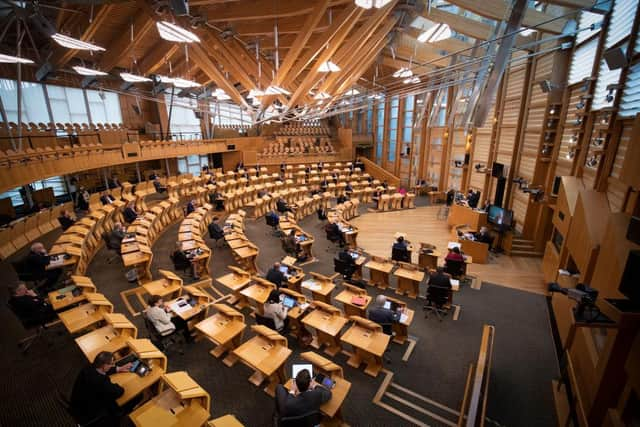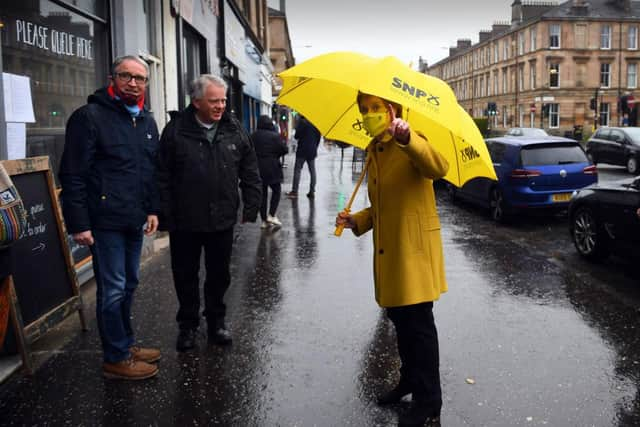Scottish Parliament Election 2021: Ipsos MORI poll puts SNP on course for Holyrood majority while Alba set to struggle to win seats
Ipsos MORI’s Scottish Political Monitor, run in partnership with STV News, found that 53 per cent of Scots planned to vote for Nicola Sturgeon’s party on the constituency ballot – one point higher than polling from mid-February.
The survey, conducted between March 29 and April 4, also showed the Scottish Conservatives in a distant second place in the constituency race – down three points to 20 per cent – while Scottish Labour gained three points, sitting on 18 per cent.
Advertisement
Hide AdAdvertisement
Hide AdThe Scottish Liberal Democrats trailed on six per cent and the Scottish Greens on two per cent. Just one per cent of voters said they were planning to back “Other” parties or candidates.
However the poll found the SNP’s lead on the list vote had faltered. Of the 1,038 adults polled, 38 per cent said they would back the SNP on the list ballot – nine percentage points lower than in mid-February.
Pollsters said the main beneficiaries of the fall in SNP support were Scottish Labour and the Scottish Greens, both of whom gained four percentage points in the list, bringing their potential vote share to 18 per cent and 12 per cent respectively.
Meanwhile, just three per cent of respondents said they planned to back Alex Salmond’s Alba Party on the list. If the poll is replicated on voting day, seat projections suggest the new party could struggle to pick up a single seat.
The SNP, on the other hand, would return 70 of the 129 MSPs at Holyrood, giving them a majority of 11.


The Tories would take 25 seats, down from 31 in 2016, while Labour would take 19 – a loss of five. The Scottish Greens would take 11 seats and the Lib Dems would return just four.
Reacting to the poll, Scottish Conservative leader Douglas Ross, whose personal ratings have also slipped to just 25 per cent of voters satisfied, while 48 per cent say they are dissatisfied with him, said: “The only poll that counts is on May 6 but it’s clear that the Scottish Conservatives are the only real challengers to the SNP.
"We stopped an SNP majority in 2016 and we are the party that can do that again.”
Advertisement
Hide AdAdvertisement
Hide AdAsked if his party slipped to third place in Holyrood he would stand down as leader, he said: “I’m leading the Scottish Conservatives into this election and after the election.”


Independence is seen as the top issue helping voters decide which party to vote for, with 49 per cent mentioning it – up five percentage points on the previous poll. Education comes second at 28 per cent, followed by the NHS at 27 per cent, managing the economy at 16 per cent and coronavirus at 15 per cent.
Pollsters found support for independence is at the same level it was in the February poll, with Yes retaining a narrow lead.
Among those likely to vote in an independence referendum, 52 per cent say they would vote Yes while 48 per cent would vote No.
A message from the Editor:
Thank you for reading this article. We're more reliant on your support than ever as the shift in consumer habits brought about by coronavirus impacts our advertisers.
If you haven't already, please consider supporting our trusted, fact-checked journalism by taking out a digital subscription.
Comments
Want to join the conversation? Please or to comment on this article.